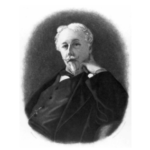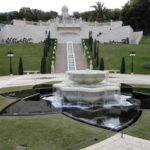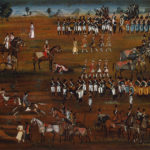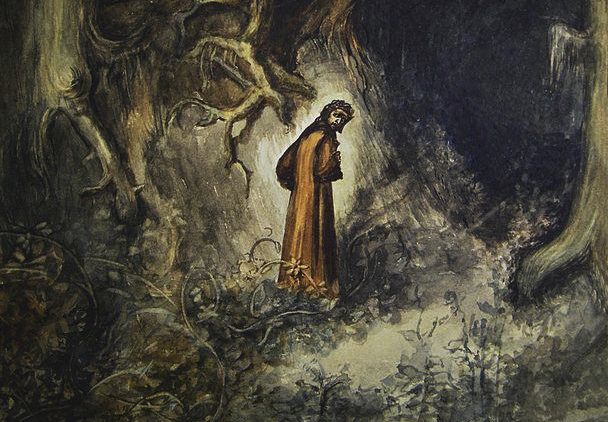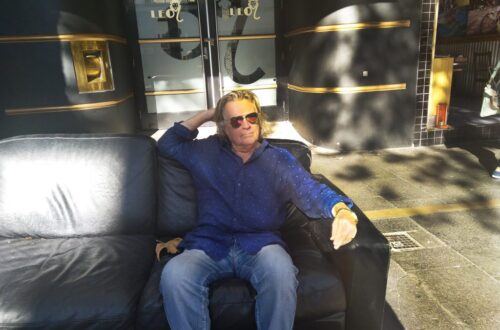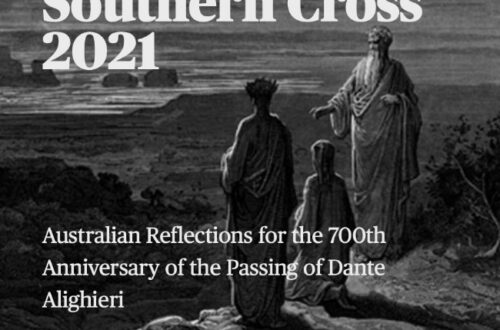
Salvatore Quasimodo: Uomo del mio tempo – Man of my time
Uomo del mio tempo
Man of my time
Sei ancora quello della pietra e della fionda,
uomo del mio tempo. Eri nella carlinga,
con le ali maligne, le meridiane di morte,
t’ho visto – dentro il carro di fuoco, alle forche,
alle ruote di tortura. T’ho visto: eri tu,
con la tua scienza esatta persuasa allo sterminio,
senza amore, senza Cristo. Hai ucciso ancora,
come sempre, come uccisero i padri, come uccisero
gli animali che ti videro per la prima volta.
Still, the stone and sling rest easily in your hand
Man of my time. There you were in the cockpit,
on wings of evil, casting meridians of death,
I saw you — in your wagon of fire; at the scaffold,
Standing by the rack. I saw you: you,
With your perfected science persuaded to the slaughter,
Deprived of love, without redeemer. Still you kill,
As ever; in the way your fathers killed, like animals that first saw you.
E questo sangue odora come nel giorno
Quando il fratello disse all’altro fratello:
«Andiamo ai campi». E quell’eco fredda, tenace,
è giunta fino a te, dentro la tua giornata.
And the blood still smells as it did that day
When one brother said to the other:
“Let us go into the fields.” And that cold, tenacious echo
reaches all the way to you, to your day.
Dimenticate, o figli, le nuvole di sangue
Salite dalla terra, dimenticate i padri:
le loro tombe affondano nella cenere,
gli uccelli neri, il vento, coprono il loro cuore.
by Salvatore Quasimodo
Forget, O children, the stormclouds of blood,
Arise from the Earth and forget your fathers:
Their tombs sink down in ashes,
Black birds on the wind, have buried their hearts.
translated by Michael Curtotti
Salvatore Quasimodo (1901-1968) is one of Italy’s most famous poets. In 1959 he won the Nobel Prize in Literature. The theme of this poem is of course self-evident. His early poetry focussed on alienation from the natural world from industrialisation. His later poetry focussed on moral themes. He was also a prolific translator.



